Airlines, Airports and Airliners News - 8 to 14 June 2020
Compiled by Willie Bodenstein

IATA - INDUSTRY LOSSES TO TOP $84 BILLION IN 2020

Passenger demand evaporated as international borders closed and countries locked down to prevent the spread of the virus. This is the biggest driver of industry losses. At the low point in April, global air travel was roughly 95% below 2019 levels. There are indications that traffic is slowly improving. Nonetheless, traffic levels (in Revenue Passenger Kilometre) for 2020 are expected to fall by 54.7% compared to 2019. Passenger numbers will roughly halve to 2.25 billion, approximately equal to 2006 levels. Capacity, however, cannot be adjusted quickly enough with a 40.4% decline expected for the year.
The International Air Transport Association (IATA) outlook for the global air transport industry shows that airlines are expected to lose $84.3 billion in 2020 for a net profit margin of -20.1%. Revenues will fall 50% to $419 billion from $838 billion in 2019. In 2021, losses are expected to be cut to $15.8 billion as revenues rise to $598 billion.
“Financially, 2020 will go down as the worst year in the history of aviation. On average, every day of this year will add $230 million to industry losses. In total that's a loss of $84.3 billion. It means that-based on an estimate of 2.2 billion passengers this year-airlines will lose $37.54 per passenger. That's why government financial relief was and remains crucial as airlines burn through cash,” said Alexandre de Juniac, IATA's Director General and CEO.
“Provided there is not a second and more damaging wave of COVID-19, the worst of the collapse in traffic is likely behind us. A key to the recovery is universal implementation of the re-start measures agreed through the International Civil Aviation Organization (ICAO) to keep passengers and crew safe. And, with the help of effective contact tracing, these measures should give governments the confidence to open borders without quarantine measures. That's an important part of the economic recovery because about 10% of the world's GDP is from tourism and much of that depends on air travel. Getting people safely flying again will be a powerful economic boost,” said de Juniac.
SAFAIR-PREPARE FOR TAKE-OFF WITH THESE LEVEL 3
FLYING REGULATIONS!
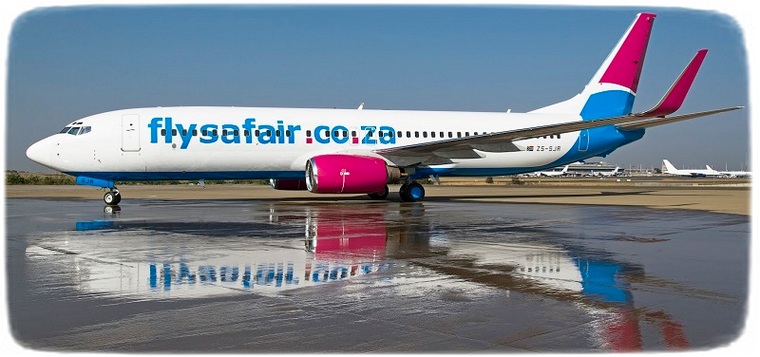
Haven't you heard! FlySafair has been cleared for take-off and we'll be up, up and away from 15 June, offering flights for permitted travel only. But before you get packing, please note that during Level 3 Lockdown, you'll only be permitted to fly for one of the following reasons:
• Moving to a new place of residence
• Caring for an immediate family member
• Members of parliament performing oversight responsibilities
• Learners and students who are travelling to schools or institutions when they are permitted
• Attending a funeral
• To transport mortal remains
• To obtain medical treatment
• People returning to their place of residence from quarantine or isolation
• Any other movement permitted under regulation 41
5 Things you need to fly:
Flying under level 3 is going to be a little different to the ordinary process. To gain access to the airport terminal you will have to pass a temperature screening. You'll also need the following 5 things:

COVID-19 UPDATE - MANGO RESTART

Mango Airlines is getting ready to take the skies once more, but will remain compliant with government regulations. Having said that, we are pleased to announce that we will resume flying on Monday, 15 June 2020. New bookings are open now for flying from 15 June 2020. We would like to take this opportunity to thank you in advance for your continued support.
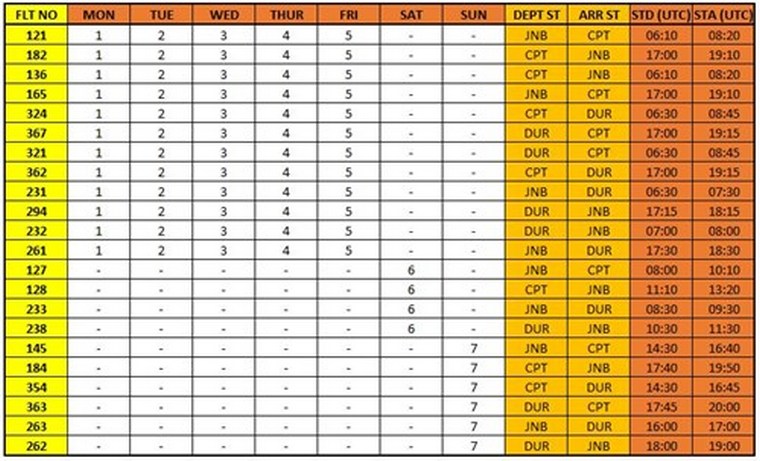
Permitted flights are between Johannesburg, Durban and Cape Town.
Only individuals travelling for essential or business travel reasons are permitted to travel by air during this phase of lockdown, and all travellers must present a relevant travel permit and letter from their employer authorising travel. This will be checked at the entrance of airports and again at check-in / boarding.
Important enough to say it twice: if a traveller does not have a relevant travel permit for either essential or business travel signed off appropriately, the traveller will not be granted access to the airport and may subsequently forfeit the travel ticket as purchased.
Mango adheres to strict safety protocols and encourages our passengers to also adhere to mandated requirements for travel.
Due to these extra regulatory and safety protocols, we would advise our guests to plan for extra time for their flight journeys. Guest need to arrive at least two-and-half hours prior to flight as a contingency for any unforeseen delays.
It is important to note that Mango Airlines, together with airlines across the world, have put in place measures to instil confidence and trust in the sector once again.
IATA CALLS ON TUNISIA'S GOVERNMENT FOR DIRECT FINANCIAL RELIEF FOR AVIATION
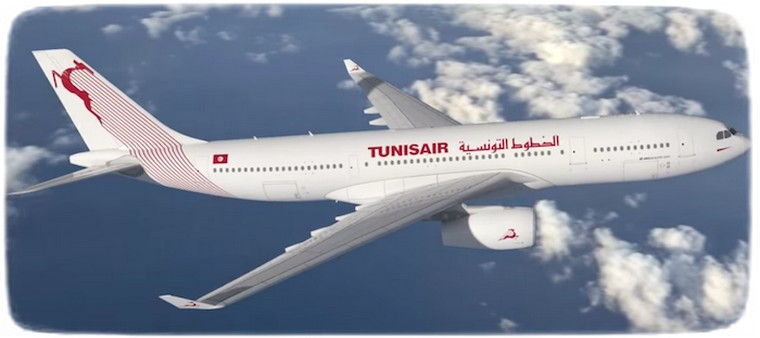
The International Air Transport Association (IATA) called on the Government of Tunisia to urgently provide financial relief measures for the aviation industry in order to mitigate the effects of the COVID-19 crisis on the nation's economy.
IATA estimates that revenues generated by airlines in the Tunisian market will fall by $0.6 billion in 2020, 47% below 2019 levels. That puts at risk 92,700 Tunisian jobs and $1.2 billion of Tunisia's GDP, which is generated by aviation and its supply chain as well as air transport-dependent tourism.
“Tunisia's economy is heavily dependent on tourism. Air transport is essential in providing connectivity and supporting tourism, which is a key economic driver for the country. The government has introduced broad taxation-related relief measures but given the central role that air transport and tourism play in Tunisia's economy, special attention must be placed on providing aviation-specific relief,” said Muhammad Albakri, IATA's Regional Vice President for Africa and the Middle East.
IATA urged the government to kindly consider aviation-specific financial relief measures to ensure that the sector will be capable of driving the recovery. These could include some or all of the following:
Direct financial support to passenger and cargo carriers
Financial relief on airport and air traffic control (ATC) charges and taxes
Reduction, waiver or deferral of government-imposed taxes and fees
“As we look to restart the industry, we call on the government to provide the necessary relief to ensure smooth and quick recovery for the air transport and tourism sectors as they are key drivers in Tunisia's economy. We also look to the Government of Tunisia to facilitate expediting the needed implementation and modernization of the airline distribution programs and mechanisms within the air transport sector. Allowing for modernization across various processes will mean faster recovery and greater competitiveness for the Tunisian market which has always been one of the leading tourism nations in Africa and the Middle East,” said Albakri
CUSTOMER INTEREST IN EUROWINGS FLIGHTS INCREASES SIGNIFICANTLY
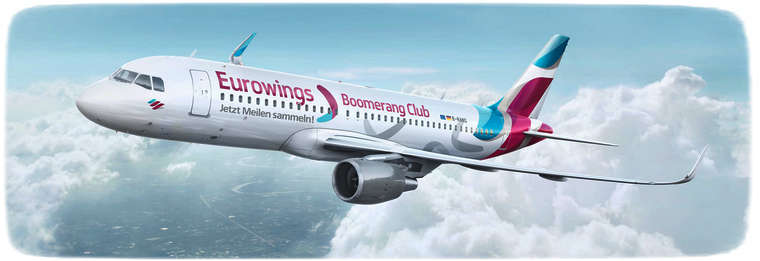
Eurowings is significantly increasing its flight programme for both business and leisure travellers and will again fly to 80 percent of its destinations during the summer. Following the lifting of the travel warning, the interest in holiday destinations such as Italy, Spain, Greece and Croatia, in particular, is growing sharply. Therefore, the Lufthansa subsidiary will be offering more than 100 summer sun and beach destinations in its flight schedule again in July.
Business travellers will also benefit from a significant expansion of frequencies to important business destinations within Europe. For the first time since the corona crisis, double end-of-day connections are returning to the timetable - with the focus on flights from Düsseldorf, Hamburg, Stuttgart and Cologne/Bonn. Eurowings is the market leader at all these locations. In addition, numerous Eurowings connections from Berlin, Hanover, Munich and Nuremberg are in the flight schedule.
Palma de Mallorca currently leads the hit list of the most popular Eurowings destinations - followed by Sylt, Zurich and Ibiza. Barcelona and Lisbon, as well as the Greek holiday destinations Rhodes and Heraklion, also enjoy strong demand. With its wide range of holiday offers, Eurowings is positioning itself as Germany's leading short- and medium-haul holiday airline at the start of summer 2020: Palma de Mallorca alone will be served in summer by 16 different departure airports from Germany, Austria and Switzerland.
To enable customers to plan their travel plans without any worries, the airline offers its guests a flexibility guarantee with extensive rebooking options even after the travel warning has been lifted: Up to 14 days before the departure date, the flight can be rebooked as often as desired and free of charge - even to a different destination. This applies to all Eurowings flight offers within Europe.
AIRBUS: ORDERS AND DELIVERIES MAY 2020
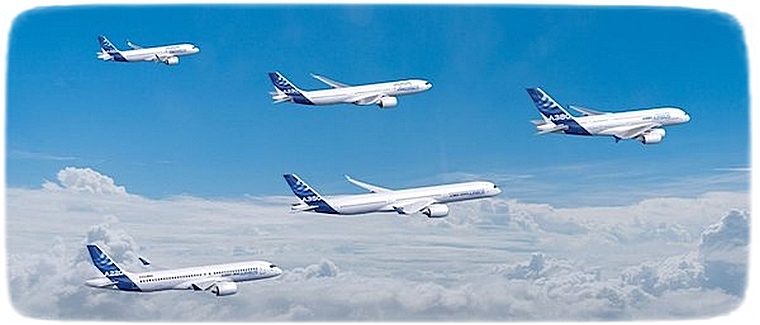
Airbus 2020 gross orders by May 31st totalled 365 aircraft and net orders stood at 299 aircraft. The company registered zero cancellations in May and no new order.
During the month, 24 deliveries were achieved from the A220, A320 and A350 XWB aircraft families.
Business in May brings the overall total orders logged by Airbus since its creation to 20,407 commercial aircraft, which includes 642 A220s, 15,572 A320 Family aircraft, 1,819 A330s, 930 A350 XWBs, and 251 A380s.
In May, Airbus delivered two A220-300 to Air Canada and 18 A320 Family aircraft including the first A320neo to Wizz Air. For Airbus widebody aircraft, four A350 XWBs were provided in both A350-900 and A350-1000 configurations.
Airbus' backlog of aircraft remaining to be delivered as of 31st May stood at 7,621, comprising 527 A220s, 6,199 A320 Family aircraft (including 6,139 A320neo Family), 322 A330s (including 287 A330neo family), 564 A350 XWBs and nine A380s.
A300/A310 A220/A320 A330/A340/A350 A380 Total
Total orders 816 16214 3126 251 20407
Total deliveries 816 9488 2240 242 12786
Aircraft in fleet 294 8986 2032 240 11552
CATHAY PACIFIC ANNOUNCES HK$39BN IN RECAPITALISATION FINANCING

Cathay Pacific today announced a recapitalisation plan that will help it maintain its competitiveness and operations, while continuing its commitments to Hong Kong as an international aviation, financial and commercial hub.
This three-part plan is designed to provide Cathay Pacific with sufficient funds to withstand the industry-wide downturn, and a stable financial platform from which it will be able to conduct the wholesale review of operations required to transform its business to reflect the new global travel market dynamics.
The recapitalisation plan comprises three tranches:
• Tranche A: Cathay Pacific will issue HK$19.5 billion in preference shares with detachable warrants to the Hong Kong Special Administrative Region (HKSAR) Government after requisite shareholders' approval has been obtained.
• Tranche B: Cathay Pacific will launch a HK$11.7 billion rights issue of shares to existing shareholders after requisite shareholders' approval has been obtained.
• Tranche C: the HKSAR Government will provide a HK$7.8 billion bridge loan facility to Cathay Pacific, available for drawdown immediately.
As a responsible company, we will continue to explore opportunities to improve our capital structure. If suitable market conditions arise, we may further access the equity and debt capital markets in order to strengthen our balance sheet.
Mr Healy said “Tough decisions will need to be made in the fourth quarter of this year to get Cathay Pacific to the right size and shape in which to compete successfully and thrive in this new environment. But once we have right-sized the airlines to adapt to our new reality, our long-term prospects remain as bright as ever, with an outstanding 70-year-old brand, a world-beating premium service offering through Cathay Pacific and Cathay Dragon, together with a newly acquired low-cost carrier in HK Express with a very exciting future and an unrivalled position in the Greater Bay Area, a region which will be the growth engine for the world economy over the next few decades. Our short-term challenges are significant, but our long-term future remains bright.”
BRUSSELS AIRPORT BLOCKS REOPENING OF RUNWAY 07R/25L

The Federal Public Service Mobility of the Belgian government intends to reopen the third runway at Brussels Airport from Monday 15 June, in order to better distribute noise pollution, but the airport operator Brussels Airport Company refuses to do so due to high costs.
Since the coronavirus crisis, one single of the three runways was enough to handle the much-reduced air traffic at Brussels Airport. Thus, the airport decommissioned runway 07R/25L and air navigation service provider skeyes closed runway 01/19.
For several weeks, the planes therefore mainly used 25R, which led the municipalities in the north of Brussels and the Flemish periphery to bear 85% of the noise pollution, compared to 15% for the canal area in Brussels. This situation has given rise to numerous complaints, notwithstanding the fact that air traffic is almost at a standstill.
In response, Flemish Minister for the Environment Zuhal Demir and Federal Minister for Mobility François Bellot agreed to reuse all three runways to better distribute the pollution. On June 1, skeyes released runway 19 so that it could be used a few nights a week while Brussels Airport should, in principle, reopen the third runway 25 on June 15, especially as Brussels Airlines (which accounts for 40% of the traffic at Brussels Airport) and many other airlines will then gradually restart its operations.
But the management of Brussels Airport does not agree and refuses to reopen the third runway, because of the additional costs that this would imply for the airport, already heavily affected by the crisis. At a press conference last week, Brussels Airport CEO Arnaud Feist said he expected a loss of 200 million euros by year-end.
KLM ADDS MORE DESTINATIONS TO NETWORK
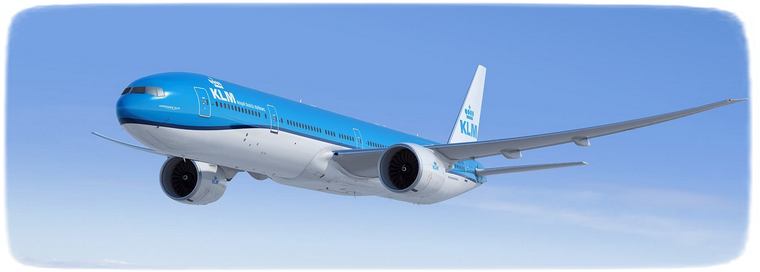
KLM Royal Dutch Airlines will further expand its route network in July. Compared to June, the number of flights will increase by more than 60 percent. KLM will operate 25 to 30 percent of the normal number of flights.
The range of destinations will be expanded, particularly in Southern Europe. These destinations include Alicante, Bilbao, Bologna, Ibiza, Istanbul, Nice, Porto, Catania and Split. In total, the planned European KLM network comprises 73 destinations in the month of July, up from 30 destinations in May and an expected 45 destinations in June.
In June, KLM expanded its intercontinental network to include Aruba, Bonaire, Sint Maarten, Paramaribo and Quito. In July, KLM plans to add six additional destinations (Jakarta, Denpasar, Washington, San Francisco, Vancouver, Calgary) and frequency expansions to destinations KLM already offered in June. In total, there are 51 destinations. Approximately half of these destinations are currently only flown for cargo. As soon as authorities relax travel restrictions, KLM will also open these destinations for ticket sales where possible.
With the network expansions in July, KLM will once again serve 78 percent of the initially planned number of destinations with more than 3,000 departing flights at Amsterdam Airport Schiphol. As stated above, the number of frequencies amounts to 25 to 30 percent.
Our customers want to travel again. We are therefore expanding the network slowly and carefully. With all the hygiene measures taken on board and on the ground, we are doing this as safely as possible.
DELTA LAUNCHES UNIQUE GLOBAL CLEANLINESS DIVISION TO DRIVE LONG-TERM COMMITMENT TO CLEAN

Delta is establishing the airline's first Global Cleanliness division - a new department within the Customer Experience organization dedicated to innovating and evolving our already-high cleanliness standards.
In the three months since the global pandemic dramatically impacted the world, teams across Delta quickly and effectively established a new standard of cleanliness for Delta, and our industry. This latest move is a unique way for the global carrier to continue bringing laser focus to cleanliness efforts as part of the layers of protection we are offering customers.
The cleanliness transformation that customers experience today it is the foundation upon which Delta's future travel experience is being built for our customers to enjoy. Leading the organization is Mike Medeiros, vice president - Global Cleanliness.
“Mike has been a steadfast leader in our transformation and cleanliness focus to date, effectively working across teams to coordinate our massive efforts at scale,” said Bill Lentsch, Chief Customer Experience Officer. “This team will bring the same focus and rigor to cleanliness that we're known for in transforming customer expectations for on-time, completion and baggage performance - so that customers can feel confident when choosing to fly with us.”
The Global Cleanliness organization will further develop and execute Delta's cleanliness standards, methods and quality management to ensure a consistently safe and sanitized experience across our facilities and aircraft for employees and customers, alike.
“Nothing is more important than the health and safety of our colleagues and our customers,” Medeiros added. “I'm looking forward to innovating our processes and elevating our standards so that every customer, every flight feels confident in their choice to fly with Delta.”
SWISS REPORTS FIRST-QUARTER OPERATING LOSS OF CHF 84.1 MILLION

As a result of the coronavirus pandemic and its unprecedented impact on the air transport sector, SWISS incurred an operating loss of CHF 84.1 million for the first quarter of 2020 (which compares to an operating profit of CHF 48.3 million for the prior-year period). First-quarter revenues also declined to CHF 923 million, some 20 per cent below their prior-year level (Q1 2019: CHF 1.15 billion).
SWISS transported 21.4 per cent fewer passengers in the first three months of 2020 than it had in the same period last year. First-quarter systemwide seat load factor amounted to 73.3 per cent, a decline of 5.3 percentage points. No forecasts can currently be made of results for 2020 as a whole, in view of the still highly unpredictable nature of the present developments.
The coronavirus pandemic brought civil aviation worldwide to a virtual standstill within weeks. This has also had a dramatic impact on results at Swiss International Air Lines (SWISS) for the 2020 first-quarter period. SWISS reports an operating loss for the quarter of CHF 84.1 million (Q1 2019: operating profit of CHF 48.3 million). With demand for air travel collapsing and capacities reduced accordingly, SWISS's total first-quarter revenues declined 20 per cent to CHF 923 million (Q1 2019: CHF 1.15 billion). With the further development of the present coronavirus pandemic extremely difficult to predict, no forecast can currently be given on results for 2020 as a whole.
SWISS responded immediately to the lost ticket revenues by initiating various cost-reducing actions. These have included the companywide adoption of short-time working and a hiring freeze, along with the deferral of planned investments. The company will also be resizing its fleet by deferring deliveries of short- and medium-haul aircraft currently on order, and is further considering withdrawing older aircraft earlier than planned. SWISS has also sought government support to avert the still-present threat of temporarily insufficient liquidity.
SWISS Chief Financial Officer Markus Binkert says: “Once it became clear that we would be facing a longer coronavirus pandemic, we took immediate action to reduce our costs. And this, together with financial support from the Lufthansa Group and the loan guarantees that have been provided by the Swiss Confederation, will enable us to bridge any liquidity gap. Needless to say, we will be doing everything in our power to repay such loans with interest with all possible speed.”
IATA FIGURES SHOW AIRLINE'S OPERATIONS ACCOUNT FOR 17.8% OF INTERNATIONAL PASSENGER TRAFFIC AND 7.2% OF AIR CARGO CAPACITY

New independent data from the International Air Transport Association (IATA) clearly reaffirms Qatar Airways as the airline that worked diligently to take people home safely and reliably during this crisis. Qatar Airways' over 1.3 billion revenue passenger kilometres (RPK) during the month of April accounted for 17.8% of the global market, over triple its nearest competitor and more than the next four airlines combined. Qatar Airways Cargo also continues to lead its sector with more than 900 million cargo tonne kilometres (CTK) accounting for 7.2% of the global cargo market, ensuring much needed airfreight capacity to support global trade and the transportation of essential medical and aid supplies to impacted regions.
While the COVID-19 pandemic has created unprecedented challenges for the global aviation industry, the national carrier of the State of Qatar has remained focused on its fundamental mission of taking people home. Qatar Airways has become the largest carrier in the world flying over 50 million kilometres to repatriate over 1.8 million passengers on over 15,000 flights during the crisis. The airline has also worked closely with governments, and companies around the world to operate over 220 charters and extra sector flights. Qatar Airways has accumulated unrivalled experience of how to safely and reliably carry passengers during these uncertain times, having taken more people home on more flights to more destinations than any other airline.
Qatar Airways Group Chief Executive, His Excellency Mr. Akbar Al Baker, said: “An unprecedented challenge needs an unprecedented response and Qatar Airways worked tirelessly to continue providing repatriation options to stranded passengers. Such was our commitment to this mission that our RPKs were greater than the next four airlines combined, a statistic without parallel in modern aviation.
“It is no surprise why more people are relying on us for international travel than any other airline. While many airlines suspended operations, we continued to maintain a robust schedule and network. Our network never fell below 30 destinations and we have recently begun to regrow our global network with over 170 weekly flights to more than 40 destinations and plan to resume over half of our previous destinations by the end of the summer season. Our commitment to the travel market is clear, Qatar Airways is the airline passengers and trade partners can rely on now and in the future.
“Our continuous operations ensure we have significant experience in keeping up to date with the latest international airport procedures. We have implemented the most advanced safety and hygiene measures on board our aircraft, as has our award-winning home and hub, Hamad International Airport, recently voted the Best Airport in the Middle East for the sixth consecutive year.”
The airline's home and hub, Hamad International Airport (HIA) has also continued to lead the industry being recently voted the 'Best Airport in the Middle East' for the sixth year in a row and 'Best Staff Service in the Middle East' for the fifth year in a row. It was also ranked “Third Best Airport in the World”, among 550 airports worldwide, by the SKYTRAX World Airport Awards 2020. Rising from fourth position in 2019 to third in 2020, HIA has been steadily rising in the 'World's Best Airports' rankings.

|
                   |























